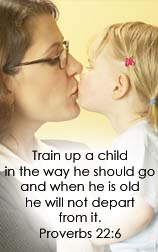 I was sitting in church yesterday when a young family, who were obviously new to the whole church thing, broke the unwritten rules for church behavior. They walked in late, crossed one whole row of seats and an aisle to sit down, got up repeatedly during the service, and returned one time through the side door at the front of the sanctuary where they could be seen (and heard) by all in attendance. At one point I looked over and mom was nursing her baby without covering herself with a blanket or burp cloth, and then dad proceeded to throw the baby up into the air and catch him…much to the amusement of the many rows of people behind them.
I was sitting in church yesterday when a young family, who were obviously new to the whole church thing, broke the unwritten rules for church behavior. They walked in late, crossed one whole row of seats and an aisle to sit down, got up repeatedly during the service, and returned one time through the side door at the front of the sanctuary where they could be seen (and heard) by all in attendance. At one point I looked over and mom was nursing her baby without covering herself with a blanket or burp cloth, and then dad proceeded to throw the baby up into the air and catch him…much to the amusement of the many rows of people behind them.
At first I was a little irritated that these people didn’t know the rules! And then I started thinking about how we learn the unwritten rules in life. Where do these unwritten rules come from? And if they aren’t written anywhere, how do most people know them and follow them? Did they grow up in a churched family like mine where the rules were taught (or caught) from early childhood? Most of our life rules are based on social standards, and they are unique to different situations and places. It would not have been out of place for a young family to get up repeatedly or cross a row of seats to find the best seat at a sporting event, but in church it seemed inappropriate, and definitely broke the rules for proper church behavior. Like most “life rules” we don’t even know we live by them until someone breaks one.
I often ask my clients to write their life rules as a homework assignment. It isn’t until we define our life rules that we can begin to understand how we think and then, by accepting them or changing them, take control of how we live.
Virginia Satir, renowned psychologist, used this story in her workshops and her book Peoplemaking:
"My roasting pan is too small."


























No comments:
Post a Comment